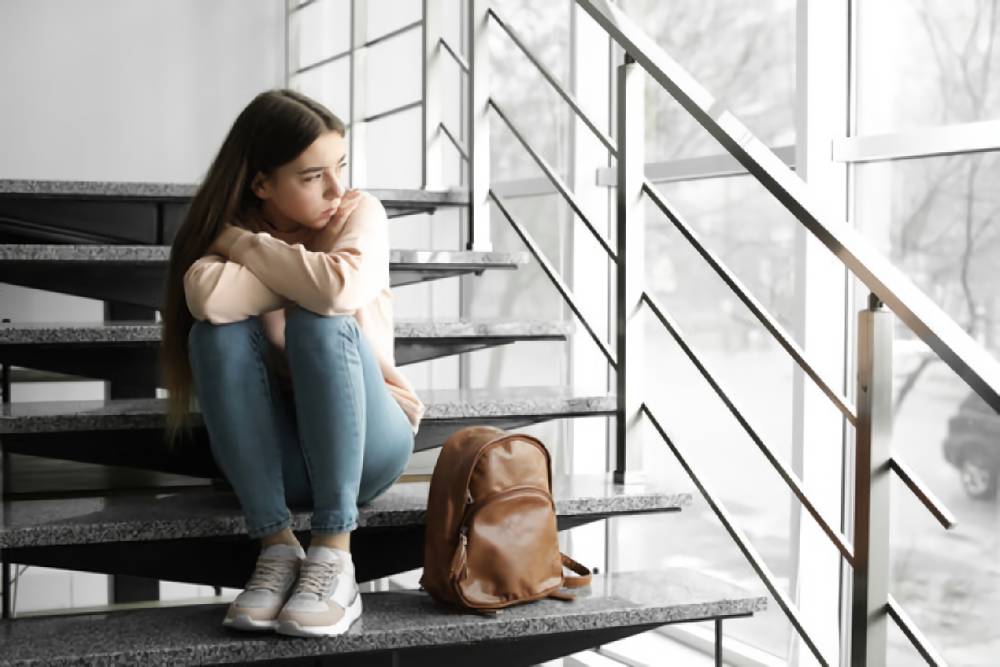Last Updated on 2 years ago by Nicky Johnson
Meaningful connection with others is essential for our health and well-being. However, many people experience significant barriers when it comes to social interactions that support making new connections or maintaining old ones.
Maybe you find that social gatherings require so much energy that you don’t always have. Perhaps there are certain aspects of socializing that you would rather avoid. But is this attributed to being an introvert or the presence of anxiety? In this article, we will define the difference to help you clarify what you may be experiencing.
For more articles and information about coping with anxiety, click here.

Defining Introversion
Blog Contents
Introversion and extroversion are considered one of the ‘Big Five’ dimensions of personality. Where someone is on this spectrum describes how they receive energy. While extroverts are energized by interactions with others, introverts require solitude in order to ‘recharge their batteries’.
It is important to note that introversion-extroversion is a spectrum, and many individuals find themselves somewhere along the middle of these two extremes.
There are many societal misconceptions about introverts, such as that introversion is synonymous with shyness or social awkwardness. This is simply not true. Many introverts do enjoy interacting with others and being out in the world, but at the end of the day, find refuge back in their inner worlds.
Those who lean towards introversion may find that they have a limit to how much social interaction they can engage in without feeling drained. They may feel as though they are fulfilled by less social interaction than say an extrovert would desire.
Many introverts prefer certain types of social settings, where they can be with one close friend or small group compared to a large group of acquaintances. For these reasons, they may be hesitant to engage in various social gatherings, just out of preference to spend time alone or with chosen others in a more comfortable setting.
It is perfectly okay to be an introvert, and make the decision to decline an invitation to preserve your energy or organize your life in a way that honors your need for alone time. However, if you desire to engage more socially, but feel consistently held back due to fear, it may indicate something known as social anxiety.
Social Anxiety Disorder is a mental health condition that is characterized by a persistent fear of social situations in which one could be judged or embarrassed by others. A person with Social Anxiety Disorder commonly experiences feelings of anxiety leading up to and during social interactions (which may look like racing heart, sweating, nausea, etc.)
In some cases, a person may even experience a panic attack. They may avoid situations where they will have to interact with others altogether, which can interfere with work or school, daily responsibilities, and the ability to form or maintain relationships.
It is common for individuals with Social Anxiety Disorder to feel isolated, as though they want to be able to connect with others, but their fear feels too overwhelming or difficult to control.
If you believe you may be experiencing social anxiety that is impacting your quality of life, reach out to your doctor or a mental health professional. There is treatment available (such as psychotherapy and medication) that can help people with Social Anxiety Disorder to manage their symptoms and overcome debilitating fear.
Frequently Asked Questions (FAQs):
Introversion is a personality trait that can influence one’s social energy and preferences. On the other hand, social anxiety is rooted in fear of situations where one could be judged or rejected by others. This can lead to extreme distress in social settings, or even avoidance of them altogether.
One way of thinking about the difference is the quote “Introversion is your way. Social anxiety gets in your way.” While introversion is an aspect of personality, Social Anxiety Disorder is a mental health disorder that develops due to a variety of factors, and can be treated.
Anyone can develop Social Anxiety Disorder, whether they are an introvert or extrovert, or somewhere in the middle of the spectrum. It is possible for some introverts to also have social anxiety. This can make it challenging to differentiate between avoiding social gatherings out of a desire to recharge or preserve energy, or because socializing feels anxiety-provoking.
Yes. Social Anxiety Disorder is a mental health condition that is defined by excessive fear about social situations where one could be embarrassed or rejected by others. This can lead to physical symptoms of anxiety in social settings (such as racing heartbeat, sweating, or nausea) or avoidance of these situations.
Many people with Social Anxiety Disorder experience challenges with going to school or work, maintaining relationships, and carrying out daily activities due to their uncontrollable fear.
In some cases, symptoms of social anxiety lessen as an individual gets older. But for many people, anxiety and distress persists if they do not seek out treatment. There is treatment available that helps an individual with Social Anxiety Disorder to improve their quality of life.
Through Cognitive Behavioral Therapy and exposure, an individual can face their fears in a safe environment. By moving towards what provokes anxiety instead of avoiding it, a person comes to learn that they can tolerate discomfort and finds that their distress decreases over time.







